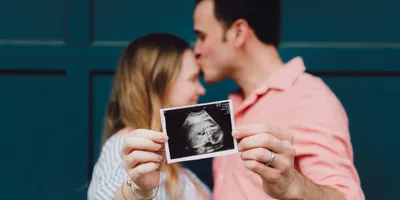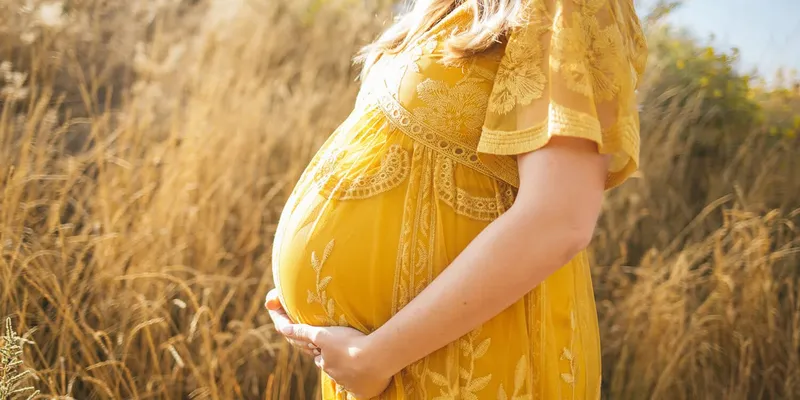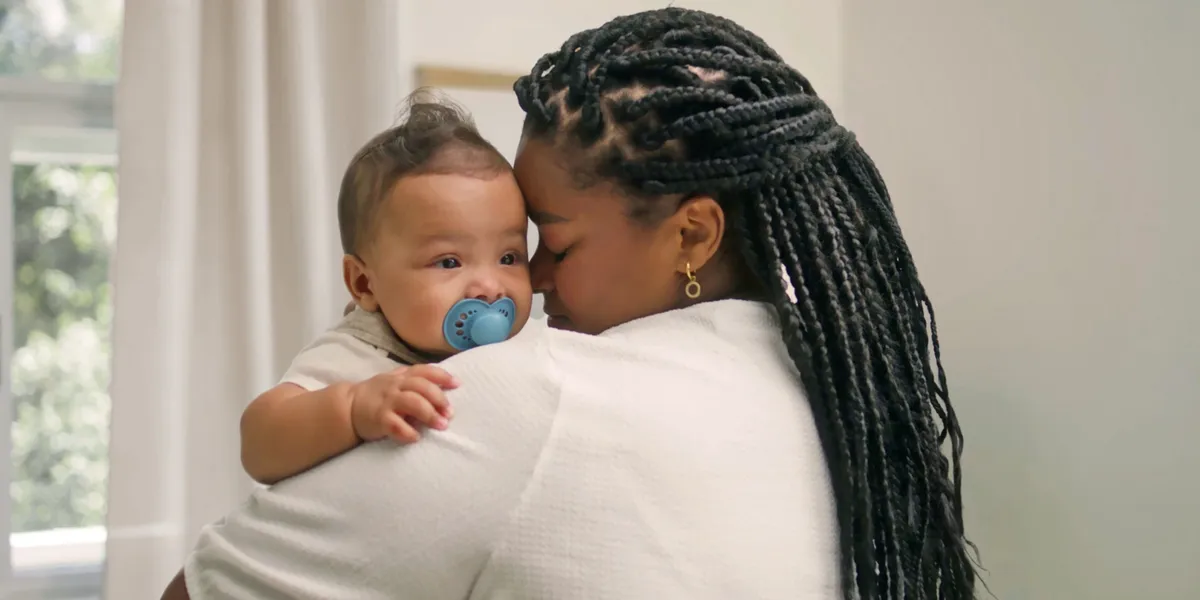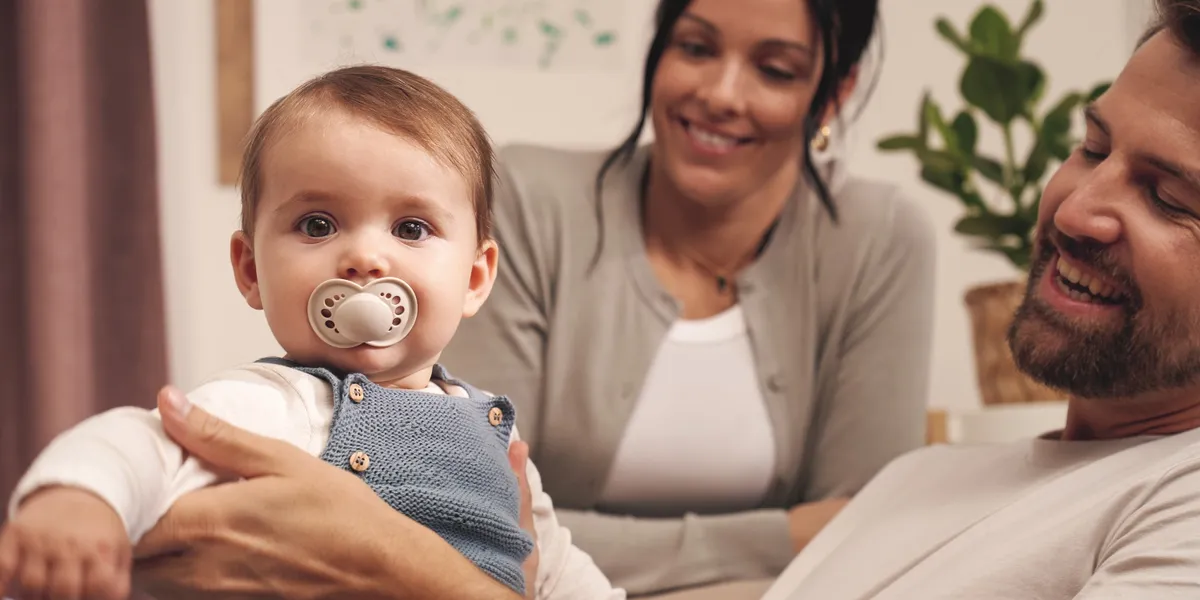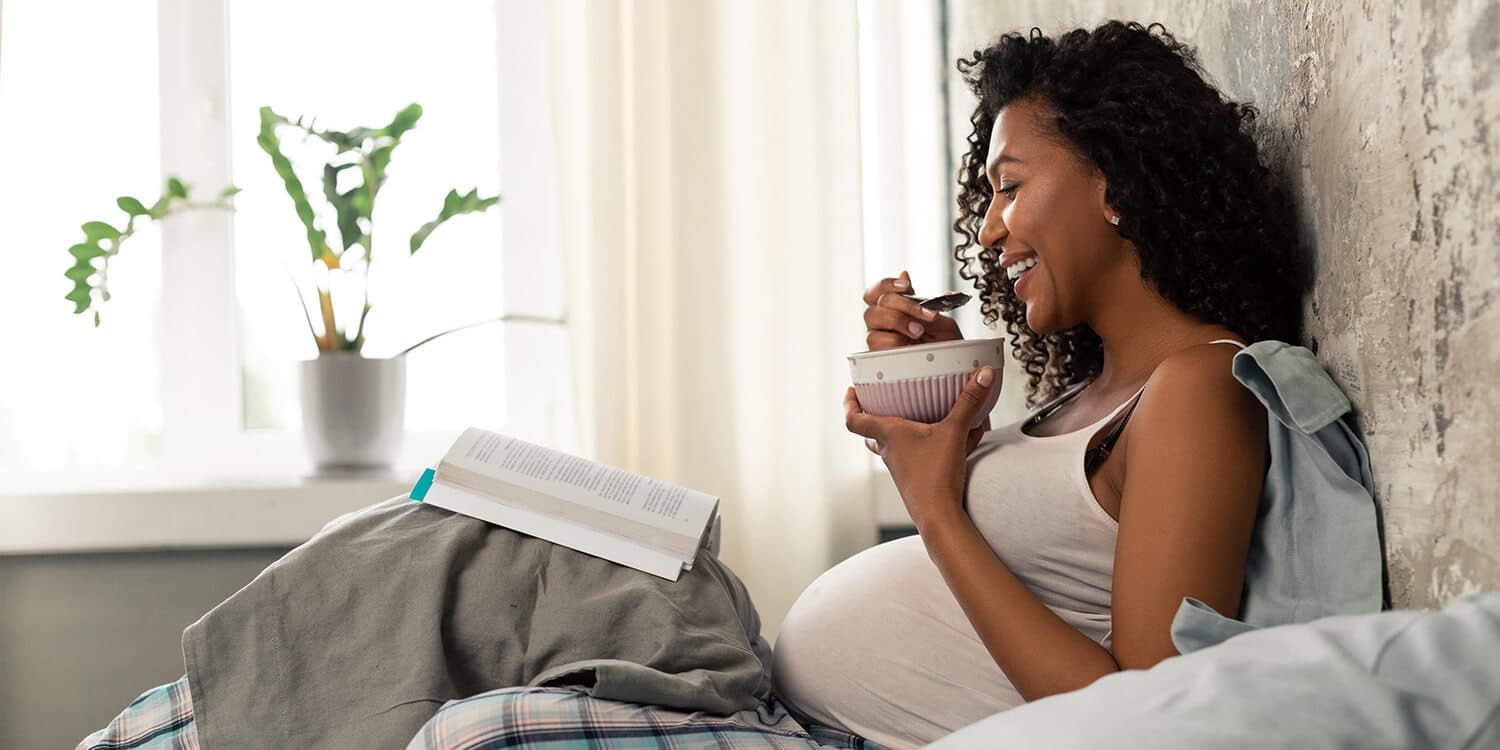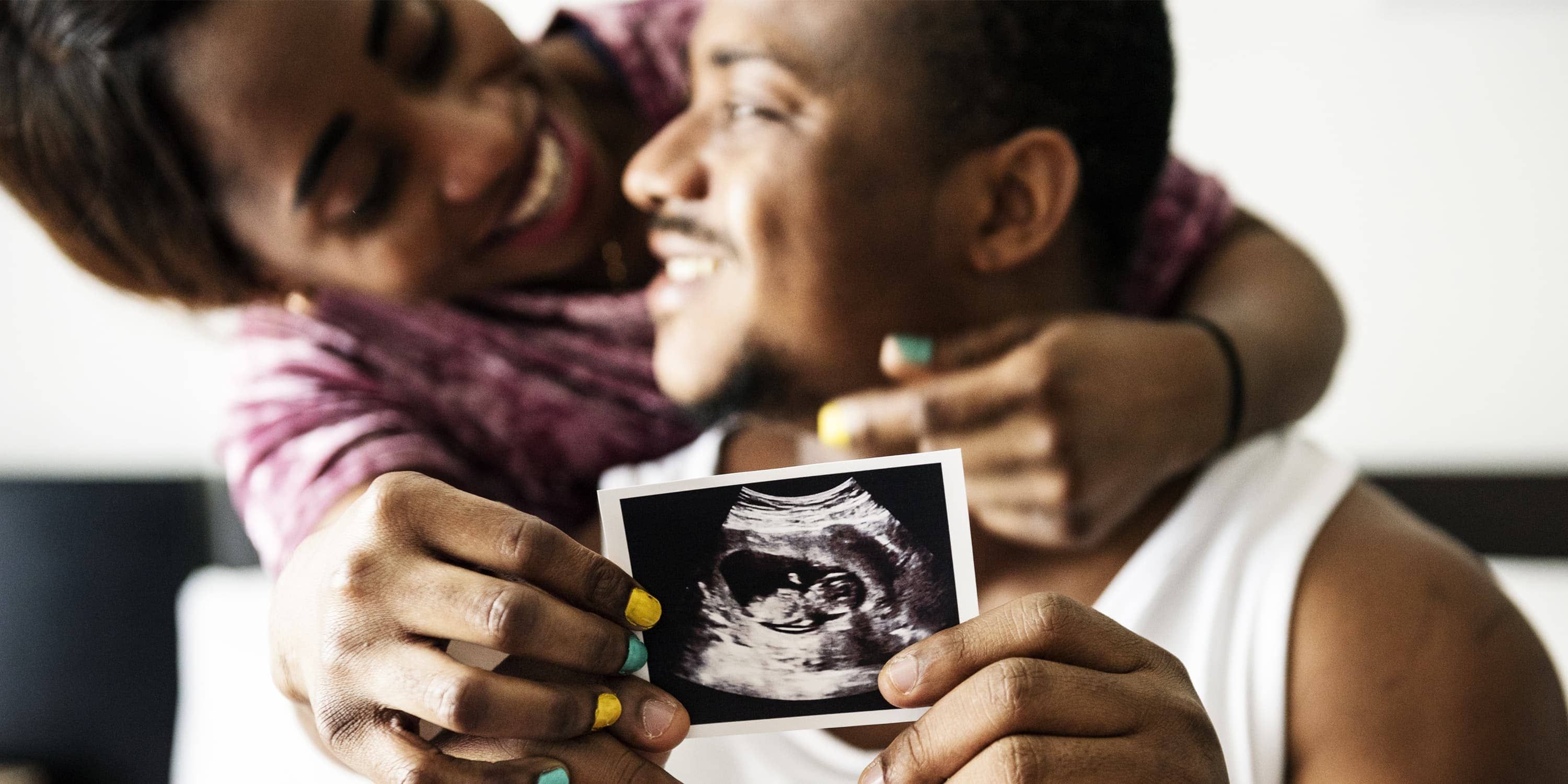The 16th week of pregnancy may be the time you start to feel your baby for the first time! But, depending on where the placenta is lying, this can take up to the 20th pregnancy week or even longer. So don't worry if you still can't feel anything. Read on to discover what is going on with you and your baby.
What's going on inside you at 16 weeks pregnant?
The foetus is around 10-12 cm long and weighs about 75-100 grams.
The ears have developed to such an extent that it is able to hear with them – your baby is now starting to get used to your voice.1 The foetus is also constantly moving about and only takes short breaks to sleep – but not yet to any timetable.
Your baby is now roughly the size of an onion.
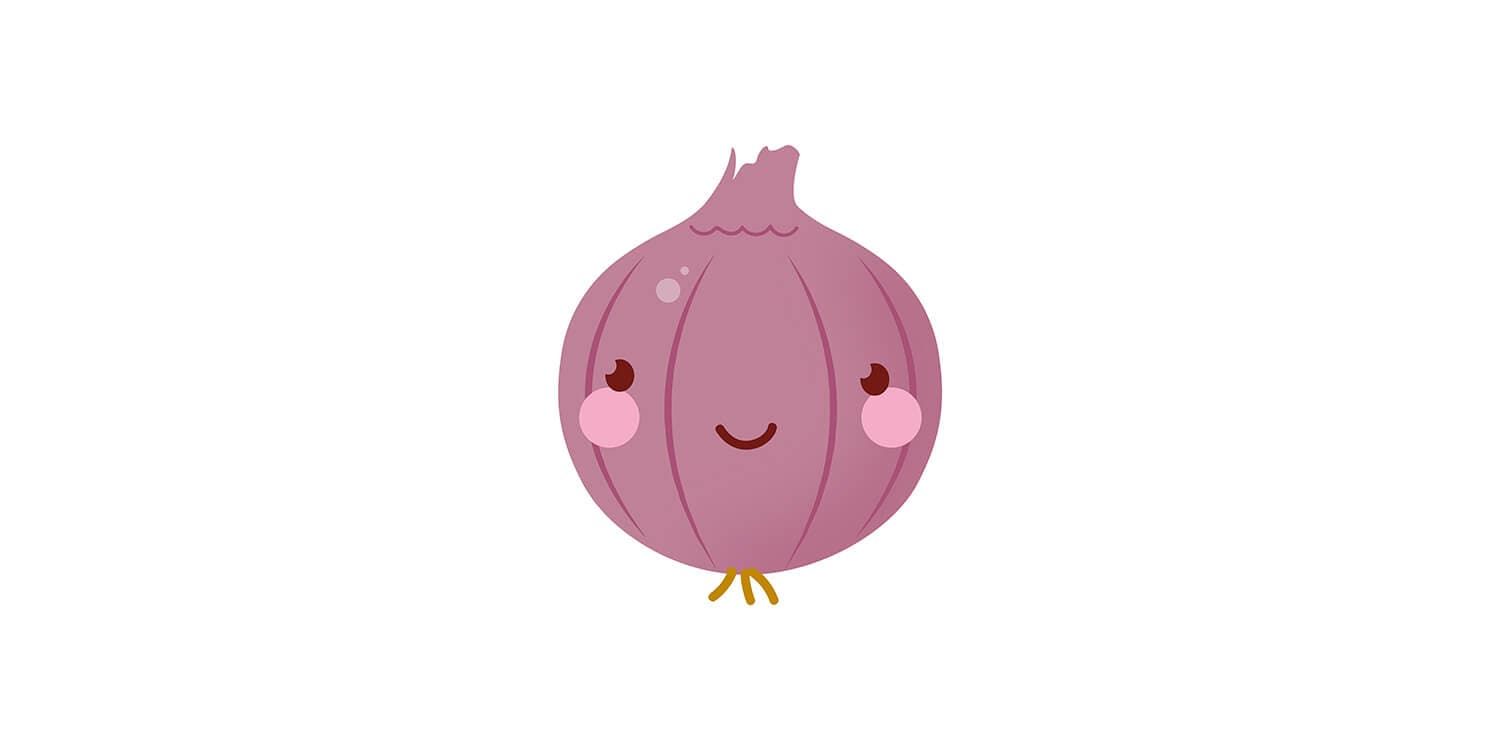
It can already suck its thumb in preparation for suckling. The sucking reflex is not completely developed until shortly before the birth – until then the baby is just busily practising!
Eyebrows, eyelashes and hairs are starting to form. Up to the 16th pregnancy week, the lanugo hair has been growing on the foetus's body. Each hair has a sebaceous gland which produces a fatty substance known as "vernix caseosa". This protects the baby's skin against the long period in the amniotic fluid, against heat and cold, and against pressure and vibrations.
By the time of birth, both the lanugo hair and the vernix caseosa have almost entirely disappeared. The shed hairs are absorbed by the foetus via the amniotic fluid. It is thought that the substances contained in the hair (keratins) also stimulate the gut activity.
It is not just the eyebrows and lashes that now make the face even sweeter – facial expressions are also starting to develop. At this time they are still relatively uncontrolled and reflex-like. In particular, researchers have identified responses to music: the babies opened their mouths and stuck out their tongues when a flute sonata was played to them.
Eyebrows, eyelashes and hairs are starting to form. Up to the 16th pregnancy week, the lanugo hair has been growing on the foetus's body. Each hair has a sebaceous gland which produces a fatty substance known as "vernix caseosa". This protects the baby's skin against the long period in the amniotic fluid, against heat and cold, and against pressure and vibrations.
By the time of birth, both the lanugo hair and the vernix caseosa have almost entirely disappeared. The shed hairs are absorbed by the foetus via the amniotic fluid. It is thought that the substances contained in the hair (keratins) also stimulate the gut activity.
It is not just the eyebrows and lashes that now make the face even sweeter – facial expressions are also starting to develop. At this time they are still relatively uncontrolled and reflex-like. In particular, researchers have identified responses to music: the babies opened their mouths and stuck out their tongues when a flute sonata was played to them.
How Do You Feel at 16 Weeks Pregnant?
The growing uterus presses especially against the gut, which can increase your bump size. Maternity clothes are now very comfortable for many women for this reason.
There are often antenatal check-ups around the 16th week of pregnancy. This is not just exciting for the mums-to-be. Partners love them too. It makes the pregnancy seem "more real" since your other half is unable to feel the many changes going on inside you. The first connection with the baby can be made, especially during an ultrasound scan. Hearing the heartbeat or watching the child turn a somersault is a very emotional moment for many people.
Your gums may be more sensitive than usual at this time. So it is especially important to clean your teeth thoroughly during pregnancy and don’t forget to book an appointment with your dentists as you’ll have free NHS dental care during your pregnancy. Hormones can also dry up your eyes, making them more sensitive. If you have any issues with your teeth or eyes, you should contact your midwife or doctor, rather than experimenting with household remedies. Even "natural" substances can have side effects on you and/or your baby.
The growth spurt may mean that you feel the broad ligaments pulling even harder. While we are talking about growth, your breasts may now be 1 or 2 cup sizes larger than at the start of your pregnancy. Some women are already producing colostrum, so there is no need to worry if you notice wet spots. But if you are unsure, it is always best to get medical advice.
There are often antenatal check-ups around the 16th week of pregnancy. This is not just exciting for the mums-to-be. Partners love them too. It makes the pregnancy seem "more real" since your other half is unable to feel the many changes going on inside you. The first connection with the baby can be made, especially during an ultrasound scan. Hearing the heartbeat or watching the child turn a somersault is a very emotional moment for many people.
Your gums may be more sensitive than usual at this time. So it is especially important to clean your teeth thoroughly during pregnancy and don’t forget to book an appointment with your dentists as you’ll have free NHS dental care during your pregnancy. Hormones can also dry up your eyes, making them more sensitive. If you have any issues with your teeth or eyes, you should contact your midwife or doctor, rather than experimenting with household remedies. Even "natural" substances can have side effects on you and/or your baby.
The growth spurt may mean that you feel the broad ligaments pulling even harder. While we are talking about growth, your breasts may now be 1 or 2 cup sizes larger than at the start of your pregnancy. Some women are already producing colostrum, so there is no need to worry if you notice wet spots. But if you are unsure, it is always best to get medical advice.
Photo Credit: Shutterstock


